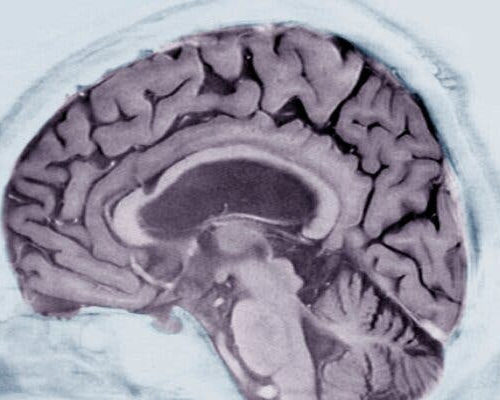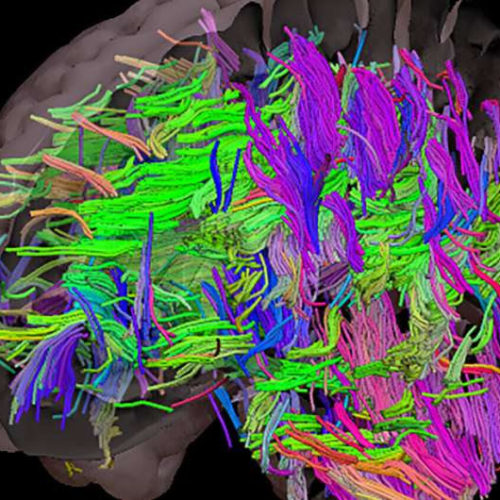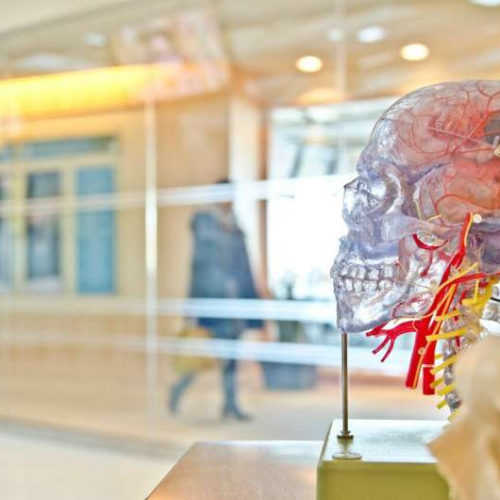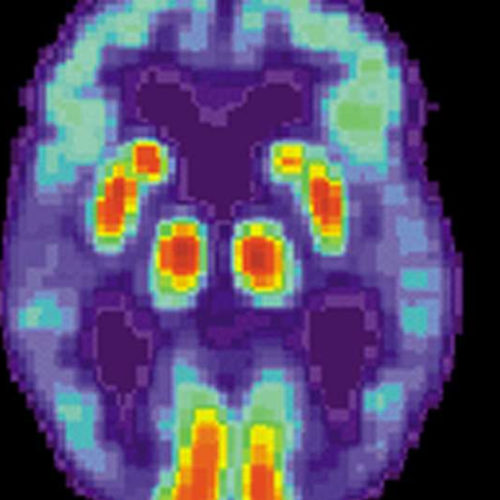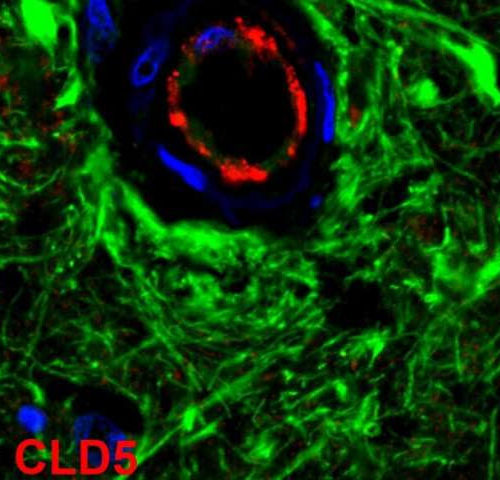IBM researchers trained artificial intelligence to pick up hints of changes in language ahead of the onset of neurological diseases. An M.R.I. scan of a patient over the age of 60 with Alzheimer’s disease.Credit…Zephyr/Science Source By Gina Kolata Feb. 1, 2021, 10:41 a.m. ET Is it possible to predict who will develop Alzheimer’s disease simply by looking...
Category: <span>Alzheimer’s</span>
Obesity may exacerbate the effects of Alzheimer’s disease, new study shows
by University of Sheffield The brain with all the white matter tracts visible. White matter tracts are susceptible to damage in people with uncontrolled cardiovascular risks like obesity. Credit: The University of Sheffield New research from the University of Sheffield has found being overweight is an additional burden on brain health and it may exacerbate Alzheimer’s disease. The...
New approach demonstrates at single-molecule scale how a drug interacts with Alzheimer’s peptide aggregates
by Wageningen University Single-molecule scale Alzheimer’s peptide aggregates. Credit: Wageningen University & Research Understanding how certain chemicals interact with molecular processes in our body is key to developing effective medications. This certainly holds true for complex neurodegenerative diseases, such as Alzheimer’s and Parkinson’s, for which no effective treatment is available as of yet. Scientists from Wageningen University...
New studies support blood test for early detection of Alzheimer’s disease
by University of Gothenburg Credit: Unsplash/CC0 Public Domain In three recent publications in Molecular Psychiatry, Brain and JAMA Neurology researchers from the University of Gothenburg provide convincing evidence that an in-house developed blood test for Alzheimer’s disease can detect the disease early and track its course, which has major implications for a potential use in clinical practice and treatment trials. “This is...
Hydrogen sulfide could guard against Alzheimer’s disease
by University of Exeter PET scan of a human brain with Alzheimer’s disease. Credit: public domain Typically characterized as poisonous, corrosive and smelling of rotten eggs, hydrogen sulfide’s reputation may soon get a facelift. In experiments in mice, researchers have shown the foul-smelling gas may help protect aging brain cells against Alzheimer’s disease. The discovery of the biochemical...
Mount Sinai researchers identify and characterize 3 molecular subtypes of Alzheimer’s
THE MOUNT SINAI HOSPITAL / MOUNT SINAI SCHOOL OF MEDICINE (New York, NY – January 6, 2021) – Researchers at the Icahn School of Medicine at Mount Sinai have identified three major molecular subtypes of Alzheimer’s disease (AD) using data from RNA sequencing. The study advances our understanding of the mechanisms of AD and could pave the...
Scientists discover mutations associated with early onset dementia
by Trinity College Dublin Glial fibrillary acidic protein (GFAP) and Claudin-5 staining of an affected cell. Credit: Trinity College Dublin. Scientists at Trinity College Dublin today announced a significant advance in our understanding of an early onset form of dementia that may also progress our understanding of conditions such as Alzheimer’s disease. Adult onset Leukoencephalopathy with...
Testing memory over four weeks could predict Alzheimer’s disease risk
New research suggests testing people’s memory over four weeks could identify who is at higher risk of developing Alzheimer’s disease before it has developed. Importantly, the trial found testing people’s ability to retain memories for longer time periods could predict this more accurately than classic memory tests, which test memory over half an hour. The...
Mice study identifies action mechanism of a promising drug against Alzheimer’s disease
Reviewed by Emily Henderson, B.Sc.,Dec 9 2020 A study conducted on mice published in the journal Geroscience has identified the action mechanism of a promising compound against Alzheimer’s disease, developed by the team of Medical Chemistry and Pharmacology at the University of Barcelona. The new drug belongs to a family of molecules that, when bound to imidazole...
App predicts risk of developing Alzheimer’s
LUND UNIVERSITY A new study from Lund University in Sweden shows that validated biomarkers can reveal an individual’s risk of developing Alzheimer’s disease. Using a model that combines the levels of two specific proteins in the blood of those with mild memory impairment, the researchers are able to predict the risk of developing Alzheimer’s. The researchers have also developed...

